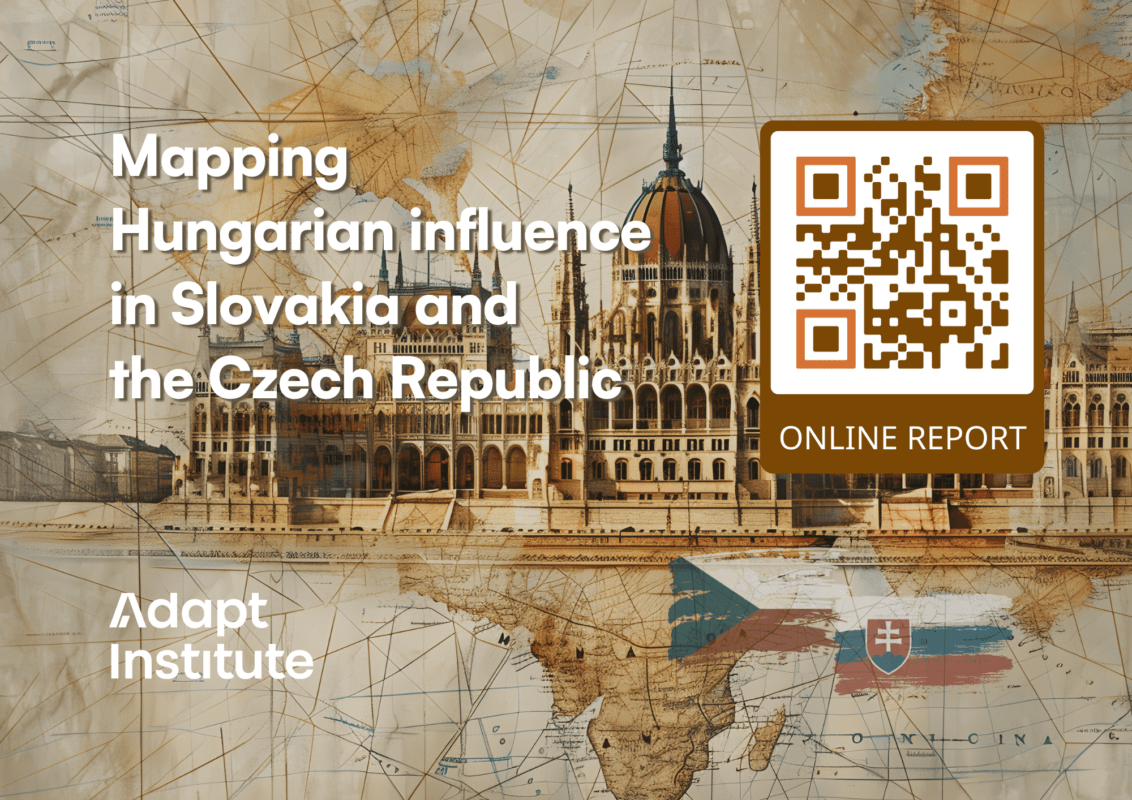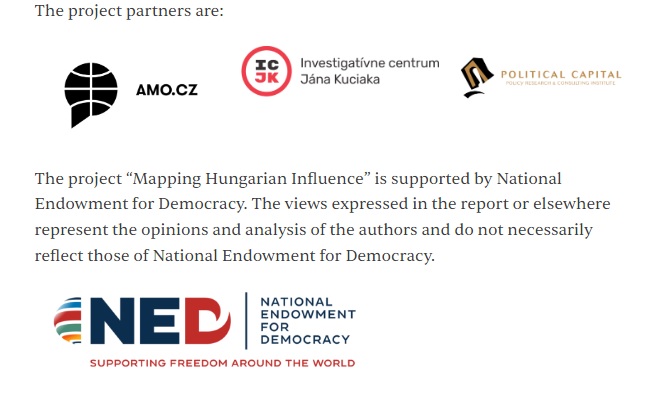Mapping Hungarian Influence in Slovakia and the Czech Republic
In today’s world, we are facing several parallel and simultaneous crises, be it climate crisis, economic volatility or security. It is increasingly important to focus analytical resources and energy on monitoring and assessing the influence operations of different interest groups. The Visegrad 4 countries are no exception. Therefore in our long-term project, we have focused on the potential links and influence of Hungary and the Hungarian government in Slovakia and the Czech Republic.
We present our latest and quite comprehensive report mapping Hungary’s influence on the Czech Republic and Slovakia on several levels.

Methodology
For data collection and analysis, we filtered relevant articles and posts from websites and Facebook pages using the SentiOne tool with predefined keywords. We then manually coded and aggregated the data to identify and quantify misinformation content and narratives associated with each topic area. Websites and Facebook pages were selected based on expert advice and the results of previous media monitoring surveys of the Hungarian population in Slovakia.
Hungarian influence in Slovakia
Under the leadership of Prime Minister Viktor Orbán, Hungary is using a sophisticated array of influence tactics to maintain and strengthen its influence over Slovakia, especially the Hungarian minority living there. These operations use a combination of diplomatic, cultural and economic tools that are carefully designed to coincide with Hungary’s broader national and regional objectives.
Diplomacy
Hungary’s diplomatic strategy is characterised by assertive gestures and strategic alliances. This policy often manifests itself in support for Hungarian political parties and candidates in Slovakia, which aims to strengthen the Orbán regime and its allies.
Public diplomacy and information operations
The narratives disseminated among the Hungarian minority aim to strengthen the popularity of the Orbán regime. These narratives often include Eurosceptic attitudes and criticism of the EU and are used to promote a political discourse critical of migration and European integration.
Hungarian influence in the Czech Republic
As in Slovakia, Hungary has sought to strengthen its influence in the Czech Republic through a variety of instruments. One example is the Hungarian influence in the Czech defence industry, specifically in Aero Vodochody.
Economic investment
Hungary invests in various economic projects in the Czech Republic, which allows it to gain strategic positions and strengthen its influence. These investments are often presented as friendly gestures, but in reality, they aim to strengthen Hungary’s presence and influence in the region.
Impact on the energy sector
One of the most critical areas where Hungary exercises its influence is in the energy sector. Hungary seeks to gain control over strategic energy infrastructures and use them to strengthen its geopolitical position in the region.
Results of the media monitoring survey
According to the 2021 survey, 80% of Hungarians in Slovakia have access to the Internet, with 71% of them reading online newspapers, 32 % daily. The most-read Slovak news portal is aktuality.sk (48.9%) and the most-read Hungarian news portal in Slovakia is ujszo.sk (43.9%).
Hungarian influence operations in Slovakia and the Czech Republic are characterised by a multifaceted approach that includes political manoeuvring, cultural investment and economic incentives. The aim of these operations is to consolidate Budapest’s influence over the Hungarian minority and to gain political support within Slovak and Czech politics.
This analysis provides a comprehensive view of Hungarian influence operations and identifies areas of potential vulnerability and lack of resilience mechanisms. The findings of our report are based on expert interviews, OSINT investigations, media content analysis, and public opinion poll results on the media consumption of the Hungarian minority in Slovakia and their perceptions of the Russian-Ukrainian war and related sanctions.
As the world faces increasingly complex challenges, it is imperative to pay attention to such influence operations and ensure that potential vulnerabilities are identified across social, political, media and cultural domains.
The study is available here.


